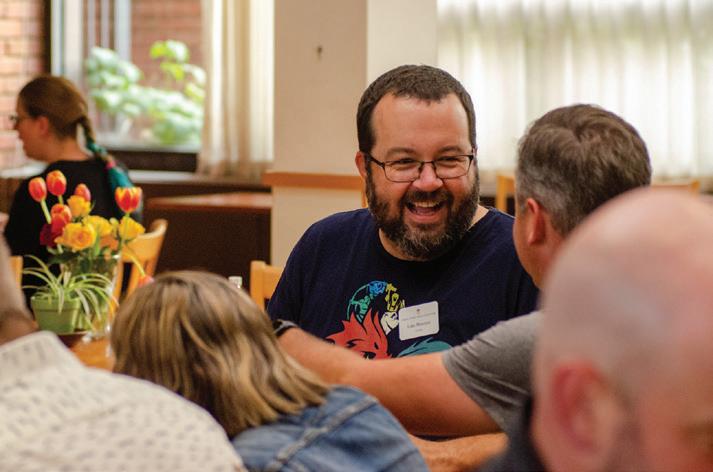
1 minute read
funds two-year curacies for graduates
“While there certainly is a continuing need for residential core strength lies in its already successful hybrid learning model. We believe that by expanding and enhancing that model, we can best serve our students and the Episcopal Church in the years to come.”
Learning in community
To understand the story of CDSP’s hybrid shift, it’s important to begin well before the 2019 strategic alliance with Trinity.
Hybrid Anglican Studies Programs have seen full enrollment and increasing demand.”


The numerical strength, geographic distribution, and vocational diversity in the Hybrid Program have given rise to a remarkable sense of community among students and alums (see “Low Residence, High Impact,” pp. 8–11). Graduates consistently emphasize that it’s possible to form very deep relationships in the hybrid modality.

“Since 2019, when CDSP and Trinity began our partnership, we have been looking to define and focus on CDSP’s unique contributions to preparing clergy to meet the changing requirements for successfully leading and growing churches of the future,” said the Rev. Phillip A. Jackson ‘94, chairman of the CDSP Board of Trustees and rector of Trinity.
“This decision reflects a recognition of what the data have been showing us for years,” said the Rev. John Dwyer, vice president and chief operating officer at CDSP. “Applications for our residential programs have steadily declined and are approaching unsustainable levels, a trend we know is not unique to our institution. On the other hand, our Hybrid MDiv and
“For more than a decade, we’ve invested significantly in online education, from the design of hybrid curriculum to extensive pedagogical training for our faculty,” said the Rev. Ruth Meyers, PhD, dean of academic affairs. “We’re really proud of the academic achievements of our hybrid students, but even more so of the ways they support each other during the program and beyond.They develop strong cohorts who will be ministry colleagues for years to come.”
The seminary expects these advantages to grow under the new model. Students will continue to meet for the first time during an onsite intensive in Berkeley following their admission to the program. They will also continue







